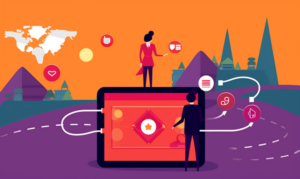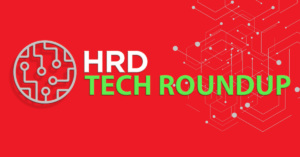The impact of machine learning on the HR profession
- 3 Min Read
As technology continues to spread into all organisations and functions, we look at how much machine learning and predictive software can transform the HR role.
- Author: Louron Pratt
- Date published: Jul 9, 2019
- Categories

With machine learning playing a part in the consistent transformational changes that are impacting the world of work. A survey conducted by MHR Analytics has highlighted that this could potentially enhance the profession of HR leaders.
HR technology has proven to be a stark issue that many business leaders rely on to improve efficiency within an organisation, if they could successfully adopt innovative pieces of software, this could positively impact the overall success of a business.
Through this survey of over 150 HR experts ranging from medium to large UK businesses, they found that Only 11% already measure employee engagement by using advanced analytics techniques such as employee sentiment analysis, but 50% say predictive analytics and machine learning would help them analyse employee sentiment to improve employee wellbeing and engagement. They also discovered that 30% of these experts believed that predictive analytics and machine learning would help their succession and talent flow planning.
Employee engagement and talent development planning could be crucial especially in an age of multiple generations working in unison, with this new software it could aid HR professionals in planning and executing tasks at an advanced fashion.
“The results mirror the conversations we are having with our 750 customers – there is a real step-change in how HR professionals see their roles evolving and becoming more sophisticated,” said Laura Timms, Product Strategy Manager, MHR.
“While most organisations still use spreadsheet-based data, they are aware that harnessing predictive analytics and machine learning tools will enable them to spend much less time on admin and manual tasks and become valuable and efficient business strategists.”
For many, the future of the world of work is uncertain and worrying, but with the introduction to this new type of machine learning, could unlock a significant advantage for HR professionals.
“As we approach the next decade, it’s clear that organisations in general, as well as the HR experts employed within them, are thinking about how they can climb the data maturity scale to remain competitive, using HR analytics, workforce planning systems and even AI.” Laura concluded.
In addition to this new software potentially opening up the opportunity for better talent flow planning and employee engagement. Many believed that predictive analytics and machine learning could also aid them to accomplish day to day tasks in a much more efficient fashion, such as detecting payroll, expenses, or identifying flight risks.
A continual issue that many HR experts face is employee retention, with the term ‘job hopping’ becoming more common amongst UK businesses, a challenge arises for HR professionals to ensure that they are keeping their workforce engaged and motivated to work for their company. However although it is important to further improve employee engagement business models, 48% of HR experts could look to use predictive analytics and machine learning to aid them in predicting when an employee is looking to leave, and track employee retention in a much more enhanced fashion.
People are an organisation’s biggest asset, and with this new introduction to this new software, it could help companies in bring their workforce close to reaching goals, with workforce prediction and planning.








